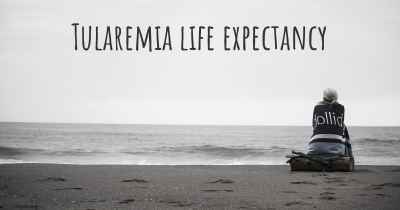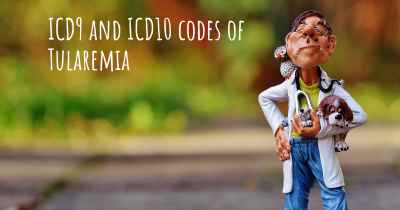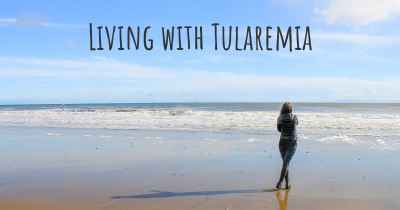Is there any natural treatment for Tularemia?
Are there natural treatment(s) that may improve the quality of life of people with Tularemia? Here you can see if there is any natural remedy and/or treatment that can help people with Tularemia

Is there any natural treatment for Tularemia?
Tularemia, also known as rabbit fever, is a rare infectious disease caused by the bacterium Francisella tularensis. It is primarily transmitted to humans through contact with infected animals, insect bites, or inhalation of contaminated dust or aerosols. The symptoms of tularemia can vary depending on the route of infection and may include fever, chills, headache, muscle aches, joint pain, and swollen lymph nodes.
While there is no specific natural treatment for tularemia, there are several natural remedies and supportive measures that can help alleviate symptoms and support the body's immune system in fighting the infection. It is important to note that these natural treatments should not replace medical intervention, and consulting a healthcare professional is essential for proper diagnosis and treatment.
1. Herbal remedies
Herbal remedies can be used to support the immune system and promote overall health during tularemia infection. Some herbs with potential antimicrobial and immune-boosting properties include:
- Echinacea: Known for its immune-stimulating properties, echinacea may help enhance the body's defense mechanisms.
- Goldenseal: This herb has antimicrobial properties and may aid in fighting bacterial infections.
- Garlic: Garlic is known for its antimicrobial and immune-enhancing properties, which may help combat tularemia.
- Andrographis: Used in traditional medicine, andrographis has antimicrobial and anti-inflammatory properties that may support the body during infection.
2. Nutritional support
A well-balanced diet rich in essential nutrients can help support the immune system and aid in recovery from tularemia. Some key nutrients that play a crucial role in immune function include:
- Vitamin C: Found in citrus fruits, berries, and leafy greens, vitamin C is known for its immune-boosting properties.
- Vitamin D: Adequate levels of vitamin D are essential for a healthy immune system. Sun exposure and certain foods like fatty fish and fortified dairy products are good sources of vitamin D.
- Zinc: Zinc is involved in various immune functions and can be obtained from foods such as oysters, beef, and legumes.
- Probiotics: These beneficial bacteria found in yogurt and fermented foods can help support gut health and enhance immune function.
3. Hydration and rest
Proper hydration and rest are crucial for supporting the body's healing process. Drinking an adequate amount of water helps flush out toxins and maintain optimal bodily functions. Sufficient rest allows the immune system to focus on fighting the infection and promotes faster recovery.
4. Prevention and self-care
Preventing tularemia is essential, especially for individuals at higher risk of exposure, such as hunters, veterinarians, and laboratory workers. Some preventive measures include:
- Avoiding direct contact with sick or dead animals: Use gloves and other protective gear when handling animals or carcasses.
- Using insect repellent: Apply insect repellent containing DEET to prevent insect bites.
- Wearing protective clothing: When in areas with a high risk of tularemia, wear long sleeves, pants, and hats to minimize exposure to infected insects or contaminated environments.
- Practicing good hygiene: Wash hands thoroughly with soap and water after outdoor activities or handling animals.
It is important to seek medical attention if you suspect you have tularemia or have been exposed to the bacteria. Antibiotics are the primary treatment for tularemia, and early intervention can help prevent complications and promote a faster recovery.








